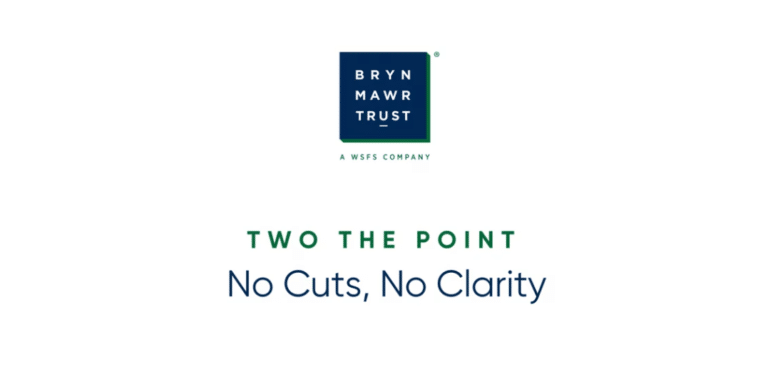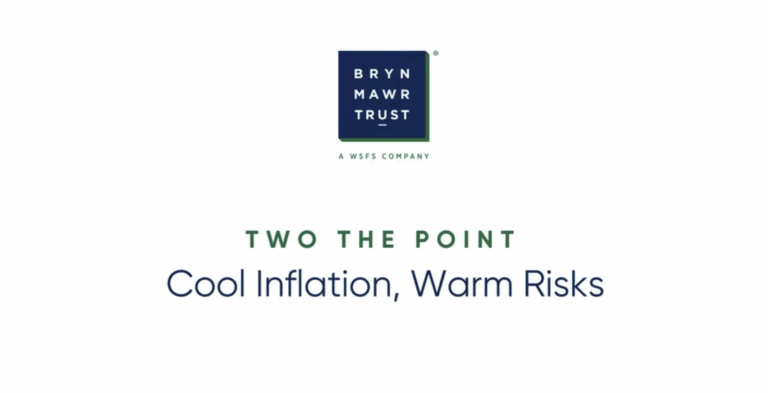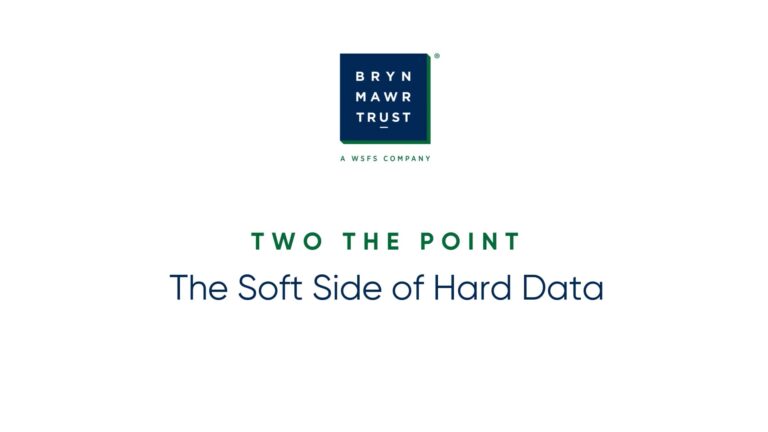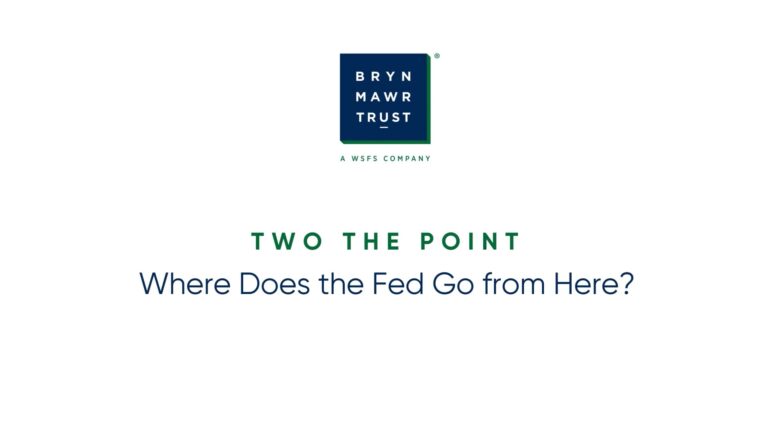Disclosures
© 2025 WSFS Bank. Member FDIC. Wilmington Savings Fund Society, FSB d/b/a WSFS Bank. Private Banking is a division of WSFS Bank.
Wilmington Savings Fund Society, FSB d/b/a/ Bryn Mawr Trust. Bryn Mawr Trust is a division of WSFS Bank. Bryn Mawr Trust Company of Delaware is a subsidiary of WSFS Financial Corporation. Products and services are provided through WSFS Financial Corporation’s subsidiaries and their affiliates. Trust and investment advisory services are offered through Bryn Mawr Trust. Bryn Mawr Trust is not a registered investment advisor. Investment advisory services are also offered through Bryn Mawr Trust Advisors, LLC (“BMTA”), an SEC registered investment advisor and a subsidiary of WSFS Financial Corporation. BMTA’s Registration as an investment advisor does not imply a certain level of skill or training.
Bryn Mawr Trust does not provide legal, tax or accounting advice but those services may be provided by affiliates or subsidiaries of Bryn Mawr Trust.
It remains a client’s responsibility to advise Bryn Mawr Trust (BMT) and Bryn Mawr Trust Advisors (BMTA), in writing, if there are any changes in a client’s personal/financial situation or investment objectives for the purpose of BMT or BMTA reviewing, evaluating, and/or revising its previous recommendations and/or services, or if a client would like to impose, add, or modify any reasonable restrictions to BMT or BMTA services.
All opinions expressed by the Associate(s) on television, radio, internet, or any other medium are merely opinions. You should not treat any opinion expressed as an inducement to make a particular investment or follow a particular strategy. Opinions expressed are based upon information that the Associate(s) considered reliable at the time spoken, but there is no guarantee of completeness or accuracy, and it should not be relied upon as such. The opinions do not represent the opinions of WSFS Financial Corporation or its subsidiaries. The Associate(s) and the listed entities have no duty to update or correct any information that was provided. Past performance is not indicative of future results, and as such, neither the Associate(s) nor any of the above-listed entities guarantee any specific outcome, performance, or profit. Before acting on any information from the Associate(s), consider suitability for your personal financial situation and seek the advice of your own financial professional.
Any third-party trademarks, and products or services related thereto, mentioned are for discussion purposes only. Third-party trademarks mentioned are not commercially related to, or affiliated in any way with, Bryn Mawr Trust products or services. Third-party trademarks mentioned are also not endorsed by Bryn Mawr Trust in any way. Bryn Mawr Trust may have agreements in place with third-party trademark owners that would render this trademark disclaimer not relevant.
INVESTMENTS: NOT A DEPOSIT. NOT FDIC – INSURED. NOT INSURED BY ANY FEDERAL GOVERNMENT AGENCY. NOT GUARANTEED BY THE BANK. MAY GO DOWN IN VALUE.









